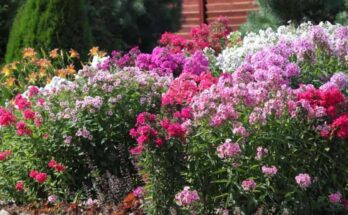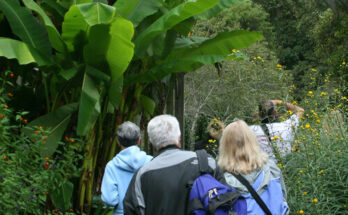OK, I know what you’re wondering: What Eats Aphids? Those small, sap-sucking insects that damage your plants. Aphids are the last things you want to see around your greenery if you have a garden or a single plant anywhere.
These soft-bodied insects are a nuisance as they sap the vigor out of plants and can turn leaves yellow. In addition to munching on leaves, these critters can transmit plant viruses.
Many different insects and animals eat aphids, including ladybirds, lacewings, hoverflies, and some species of wasps.
Other insect predators help to control aphid populations and protect plants from damage. Certain animals also eat aphids.
Let’s find out more about where aphids stand on the ecological food chain.
Different Insect And Animal Aphid Predators
Ladybugs Or Ladybirds
Ladybugs are one of the most well-known predators of aphids. You may also hear these bugs referred to as ladybirds.
These small, brightly-colored beetles are voracious eaters of aphids and other small insects.
They typically lay their eggs near aphid colonies so the larvae can have a ready food source when they hatch.
If you don’t have ladybugs in your environment, you can get a batch by mail order. Release them into your garden to feast on aphids.
Normally, the bugs will fly away in a few days. However, the ladybugs may fly away in as little as 48 hours.
Lacewings
Lacewings and their larvae are another common predators of aphids.
The larvae of these delicate-looking insects are particularly fond of aphids and can eat large numbers in a short time.
These lovely bugs have slender green bodies, wings, tapered rear ends, and curved jaws.
Their curved jaws devour aphids, caterpillars, scales, and mealybugs.
These bugs grow up to 8mm long with tapered rear ends. They often capture the aphids using camouflage with sucked-out aphid skins.
Like ladybugs, you can buy lacewing larvae as a biological control for your garden.
Hoverflies
Hoverflies are predatory flies that have a similar appearance to bees or wasps.
The larvae of hoverflies are also aphid predators and can consume large numbers of insects.
Earwigs
If you have fruit trees in your garden, earwigs are a great addition to protect against aphids.
They control the fruit aphid population without damaging the fruit or trees. Encourage earwigs by placing flower pots stuffed with hay around the area.
Predatory Midge Larvae
Predatory Midge Larvae are yellow-orange maggots that may grow up to 3mm long.
When devouring the aphid, they simply suck out the body after placing their mouth on it.
They emerge as tiny flies after they pupate in the soil. Honeydew becomes their nutrient source once they are adult flies.
Wasps
Some species of wasps are also predators of aphids. The larvae of these wasps feed on aphids and help to keep populations under control.
Wasps can be beneficial to gardens and crops as they help to reduce the number of aphids present.
The larvae can be described as parasitoids, as they end up killing the host aphid.
Several species of small parasitoid wasps, such as Praon and Diaeretiella, lay single eggs inside host aphids.
After the egg hatches inside the body, it consumes its contents and pupates inside. The adult eventually cuts a hole in the body and emerges out.
What Animals Eat Aphids?
Many different animals also eat aphids, including:
These animals help keep aphid populations in check and can prevent plant damage.
Blue tit birds have been proven to reduce aphid numbers. Both adult and young house finches and gold finches often feast on aphids.
Chickadees, Titmice, and Warblers also love these soft-bodied insects.
You should keep a birdhouse or other shelter in your garden to encourage the presence of birds.
Offer birds a water source and feeds as well. Placing a dead worm or two on the birdhouse is a great initial invitation.
Encouraging birds to bring life to your home and garden while simultaneously ridding yourself of aphid pests.
Use Aphid Predators To Protect Your Garden
While aphids are a concern for anyone with a beautiful garden, you can prevent or reduce aphids by becoming aware of their predators.
You have a range of aphid predators, including ladybugs, birds, hoverflies, predatory wasps, and more.
These predators help to control aphid populations and protect plants from destruction.
With the right knowledge and prep, you can use the ecological food chain to your plant’s advantage.
Source link
Originally posted 2022-09-10 16:26:56.





